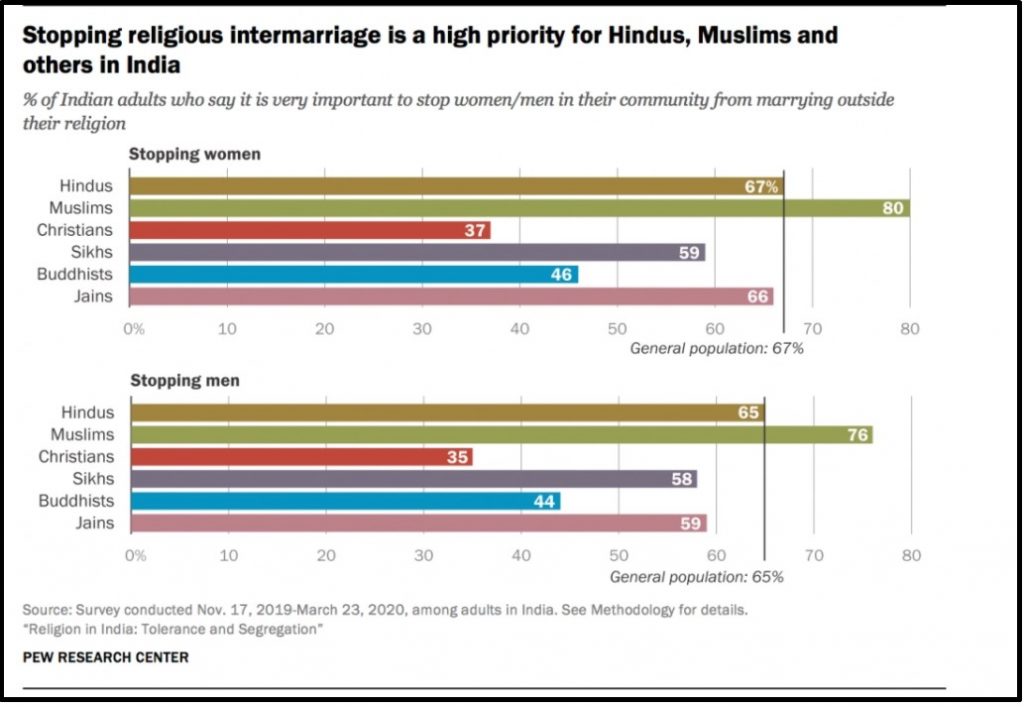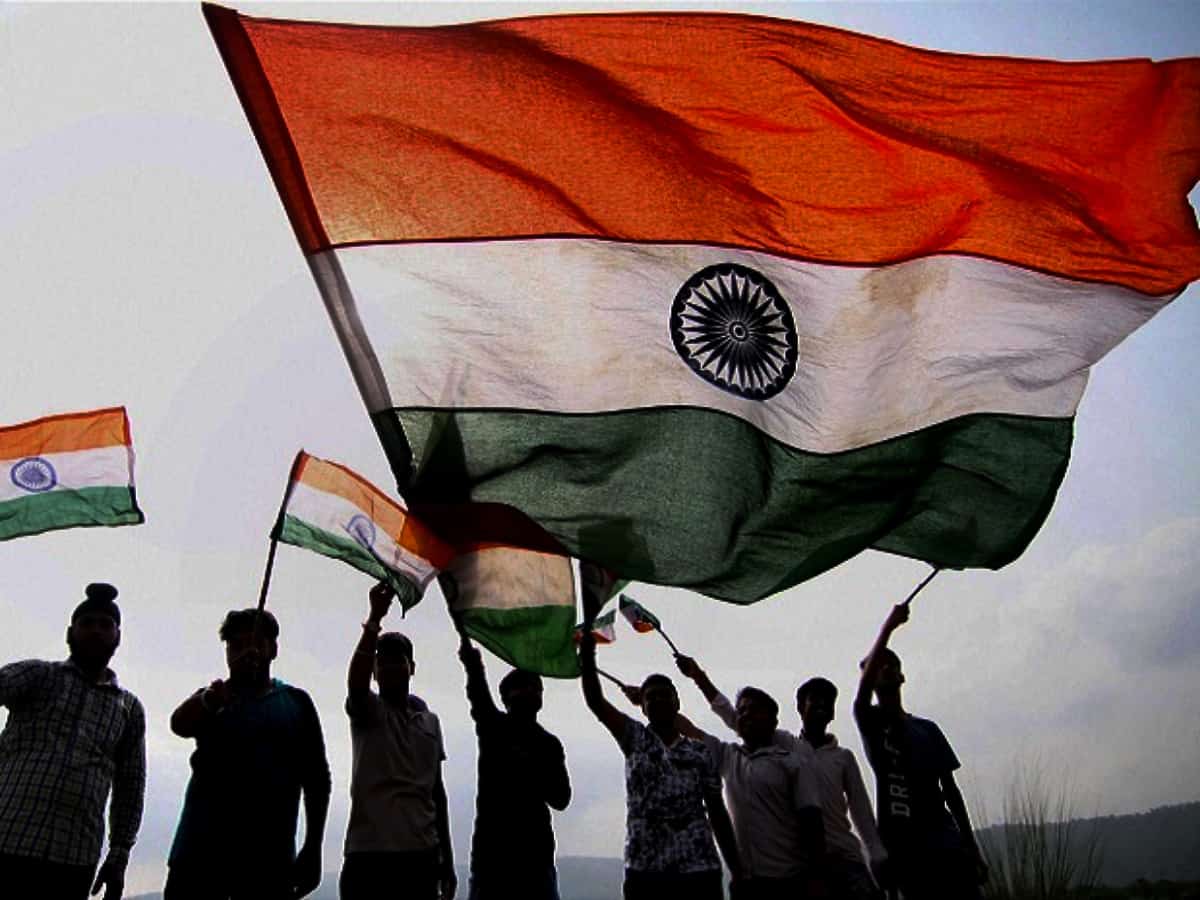Nearly two-thirds of Hindus (64%) say it is very important to be Hindu to be “truly” Indian. Most Hindus (59%) also link Indian identity with being able to speak Hindi – one of the dozens of languages that are widely spoken in India. These findings are perhaps one of the most interesting conclusions drawn in a survey conducted by Pew Research Center, a Washington-based “nonpartisan fact tank”.

The survey titled, “Religion in India: Tolerance and Segregation” was conducted in late 2019 and early 2020 before the commencement of the Covid-19 pandemic, and thirty thousand adults were interviewed face to face for the purpose of this survey.
It attempted to outline religious differences among the various religious groups co-existing in India and discuss how they viewed ideas of tolerance, segregation, and secularism.
While the survey also questioned the adults on their belief in ideas of karma, the mystical tradition of Sufism and the importance they attach to the Ganges, the compelling parts of the survey discuss how tolerance takes precedence over the active engagement demands of the intermingling of religions.
The survey noted that one in three Hindus who linked their national identity with their religion voted for the Bharatiya Janata Party in the 2019 elections. These views were found to be more common in Central and Northern India with roughly half of the voters attesting to religion and patriotism being one and the same, compared with just five percent in the South.
When the survey respondents were asked about intermarriage, eighty-three percent of Hindu BJP voters strongly believed in preventing Hindu women from marrying outside of the fold. From demarcating their religion with that of others; sixty-seven percent of Hindus are keen on preventing marriages of Hindu women with men of other religions and sixty-five percent of them apply the same view when it comes to Hindu men marrying outside of the fold. Of the Muslims interviewed in the survey, similar views were unearthed with eighty percent of them wanting to regulate the marriages of Muslim women as well.

The ironic findings of the survey are two-thirds of the Hindu BJP voters demographic were the ones who firmly believed that religious diversity benefits India and is of huge relevance. The remaining one-third of Hindus seemed to view religious diversity with ambivalence.
Another worthwhile finding of the survey was that despite the Sikh riots in 1984, only nineteen percent of Sikhs were willing to vote for the Bharatiya Janata Party despite the compensation offered by the party for the violence. Interestingly, thirty-three percent of Sikhs noted that they preferred the Indian National Congress to the Bharatiya Janata Party in the current political climate.
“This finding suggests that for many Hindus, there is no contradiction between valuing religious diversity (at least in principle) and feeling that Hindus are somehow more authentically Indian than fellow citizens who follow other religions,” the survey reads.
The details of the survey can be found here.

